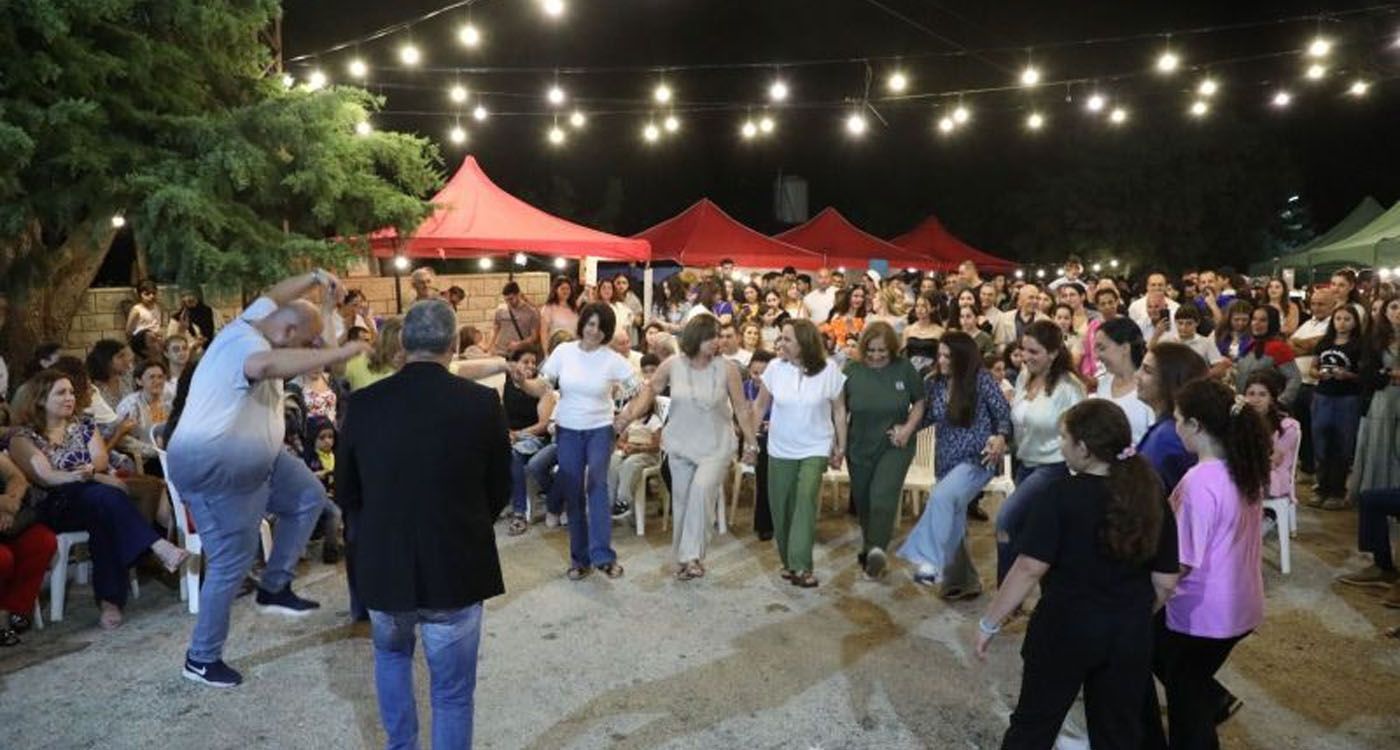
In the villages of Marjayoun and Hasbaya, summer has quietly reclaimed its place, defying fear and hardship. Restaurants, swimming pools, vineyards, festivals, and village fairs have all come back to life, offering a tender yet powerful reminder that, even under the watchful presence of Israeli drones, the spirit of the South continues to beat strong.
After eighteen months shadowed by war and anxiety, the region is stirring anew. Tourism is slowly returning to villages that escaped total destruction during the conflict between Israel and Hezbollah. Once-deserted chalets and riverside restaurants are reopening, drawing families seeking a calm refuge far from city turmoil. The sound of children laughing by pools, glasses clinking on sunlit terraces, and the savory scent of grilled food drifting through the air all signal a life reclaiming its rightful place.
Imad, who runs a restaurant along the Hasbani River, expresses the relief felt by many: “After a year and a half of forced closure, having people back here is nothing short of a miracle,” he says.
Fatigue lines his face after long nights of work, but his smile is unshakable. “We cleaned, repaired, rebuilt. The fear is still there, part of daily life now. But we can’t live forever in the shadows. People need to breathe, to reconnect, to feel this land come alive again,” he adds.
Between caution and the need to live, visitors, many of them displaced families or those returning for the season, are once again filling the South’s summer venues.
Resilience in Full Bloom
Adding to this revival, the reception halls of Marjayoun and Hasbaya are bursting with celebrations, weddings, baptisms, first communions, and engagements, events that, only months ago, felt out of reach.
Mariam, an event planner in Marjayoun, shares her excitement: “We already have ten confirmed bookings for this summer, double the number from the last two years, and requests keep coming, proof that people are ready to turn the page.”
“Every wedding, every first communion is a small victory, a powerful reminder that life goes on, that love and joy, despite everything, prevail over chaos,” she reflects.
Many postponed ceremonies are now finding their place again in blooming gardens and lovingly restored houses.
Nights of Wine and Starlight
Perched on the hills above Marjayoun, the region’s most famous vineyard has reopened to visitors. Guided tours between rows of vines and evenings spent under starry skies mark the gentle return of wine tourism. Carole, the vineyard manager, notes, “Sometimes we hear the hum of drones, but there are nights when the only sound is the chorus of crickets. This new season is one of stubborn hope. Our wine tells the story of our land and perseverance. Expatriates come not only for the wine but for the living history, the authenticity, and the resilience you can feel in every breath.”
Wine tastings, guided tours, and music-filled evenings have returned, celebrating the land and its legacy, and drawing hundreds of visitors who sip local wines while admiring enchanting landscapes. This revival supports local artisans and producers, sustaining the regional economy. Bathed in sunlight and nurtured by generous soil, “Les vignes du Marj” continue crafting a wine like no other, in a land that survives, asserts itself, and holds fast.
Fairs and Festivals Return
Festivals and village fairs have once again taken over the calendar. From brightly decorated stalls and the mouthwatering scents of street food to the laughter of children and the pulse of lively music, the kermesse spirit has returned, launched in July with the Feast of Saint Elias and followed by celebrations in villages throughout the region, marking the beat of a hard-won normalcy.
Maha, holding her children’s hands, reflects, “It’s as if Jdeidet Marjayoun is breathing again. We missed this so much: watching our children run, laugh, and play. These fairs are like a balm for our wounds.” Father Philippe al-Aqli, parish priest of Marjayoun, rejoices in these reunions, pointing to coexistence in the region as a foundation to “overcome all wounds.”
Nature, the Ultimate Refuge
Finally, ecotourism is blossoming as well. The hills of Hasbaya, pine forests, the Hasbani River banks, and Marjayoun’s plains have become sanctuaries for those longing to reconnect with unspoiled nature. Jad, from a local organization, explains, “People want to escape, breathe, and discover landscapes untouched by the noise of cities. It’s a way to show that our region is alive and beautiful, despite everything it has endured.”
This growing ecotourism supports the local economy, giving artisans, beekeepers, olive oil producers, soap makers, and culinary specialists a vital platform to share their crafts. Small village businesses benefit from the returning flow of visitors eager to explore and support the land they love.
Emotional Healing
The resurgence of tourism here is more than an economic recovery, it is a deeply emotional and existential journey. It embodies a collective act of bravery, a continuing belief in the power of life, beauty, and a shared sense of belonging.
In a Southern Lebanon too often defined by its conflict, the people reaffirm a different truth: a land full of life, vitality, and solidarity. Here, hospitality goes beyond tradition, it is a heartfelt expression of hope and faith.



Comments